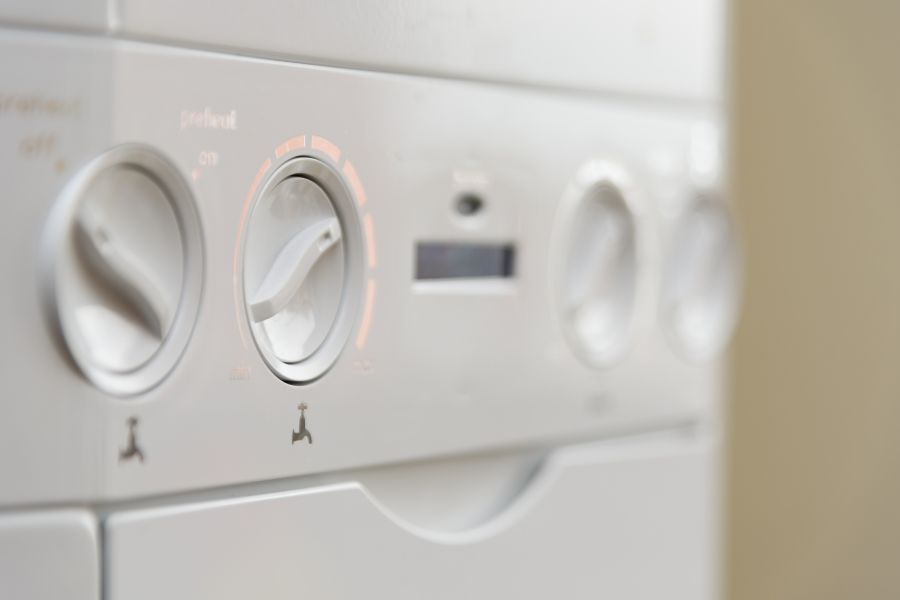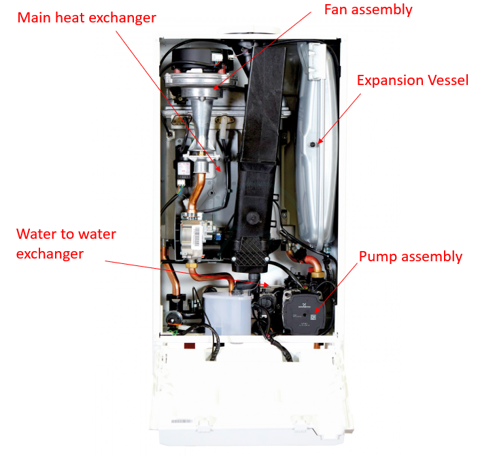Understanding your boiler
How does a combi boiler work?
13 May 2020 • 4 minutes


Combi boilers are the UK’s most popular form of home heating for a reason. Highly efficient and equally effective, there are several benefits of getting a combi boiler installed.
If you’ve ever wondered about the magic behind these compact heating marvels then you’ve come to the right place.
A combi boiler (short for combination boiler), is a type of central heating system in a single compact unit.
Unlike traditional systems that include a separate hot water cylinder and boiler, a combi boiler heats water directly from the mains when needed, eliminating the need for a storage tank.
Combi boilers provide a “combination” of instantaneous hot water and effective central heating. These systems have two independent heat exchangers; one that links to your radiators (normally heated directly by the fuel source), and another that connects to your hot water supply (normally a water-to-water heat exchanger).

Combi boilers provide a “combination” of instantaneous hot water and effective central heating. These systems have two independent heat exchangers; one that links to your radiators (normally heated directly by the fuel source), and another that connects to your hot water supply (normally a water to water heat exchanger).
Combi boilers work by signalling a sensor once you’ve requested hot water which tells the boiler to burn fuel (whether gas, electric or oil). The heat exchanger then gets hot enough to heat the water when it flows over it.
The control valves within combi boilers work in different directions to one another. Therefore, the system will either transport hot water to your radiators or to your hot water tap – however, this will not be done at the same time and the hot water circuit usually takes priority. You can use heating controls to set your heating to your desired temperatures.
Unlike heat-only and system boilers, combi boilers do not require any additional tanks or cylinders to store hot water.
Gas is commonly used in the UK to fuel combi boilers, as most domestic properties are connected to mains gas through an underground network.
Nevertheless, combi systems can be fuelled by oil or LPG, they can also be electric. LPG is typically supplied in bottles that need to be regularly replaced. Oil, in a similar manner, is usually stored in a tank which needs to be refilled on occasion.
The suitability of combi boilers varies based on individual preferences and household needs. While combi boilers offer significant benefits, they may not be the ideal choice for everyone.
Factors such as the size of the property, the number of occupants, and specific heating requirements play a crucial role in determining whether a combi boiler is the right fit.
Combi boilers come with a range of benefits that make them an attractive choice for many homeowners. These include:
It’s also important to consider potential drawbacks to help you make an informed decision. Some of these include:
We’re working together with BOXT, who can help you decide on the best heating system for your home. With a range of gas boilers available from leading brands, a qualified BOXT engineer could provide you with a first-class boiler installation as soon as the very next day if you order before 4pm!
Get a fixed price quote today to find out how much a new boiler installation could cost—you’ll also receive a recommendation for the best boiler for your home.
Our help & advice articles cover Plumbing, Home heating, Electrical, Energy-saving and Home maintenance.